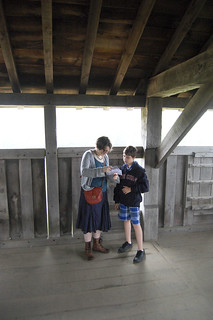When I left Elgg in 2009, I immediately started working on Outmap, a social geodata platform that you could use with any web browser. It never saw the light of day.
Outmap allowed you to collaboratively create map layers, either privately in a group, or in public. Here's two use cases that illustrate what you could do with it:
- Crowdsoucing useful free wifi hotspots Back in 2009, finding free wifi that worked well was a mission. Suddenly, you weren't alone: you could set up an Outmap space, and tell it to watch a hashtag, for example #freewifi. Users could then tweet with an address with that hashtag, or add geo-information to the tweet itself. Outmap would also watch Flickr for that tag, and check for location information either in the Flickr metadata, or in the EXIF data in the photo itself. The data then could be mapped, or simply displayed in a list based on your current location.
- Gathering (or crowdsourcing) scientific data Users could add fields with types. For example, if you were doing wildlife counts, you could take your GPS-equipped smartphone into the field, and as long as it had a web browser that supported the Javascript Geolocation API, that would be all you'd need to record a result. Your Outmap space would tie your numeric recordings of wildlife data to the location where you recorded them. And because it was all social, and tied to individual user accounts, you could examine (or even remove) recordings made by particular individuals for full accountability.
It was based on data tied to individual location points, but further developments would have allowed you to group points into areas, in order to better support some scientific applications. And again, it was all web-based used existing web standards, all social, and (like Elgg) had per-item access permissions.
Outmap couldn't be released for reasons I won't go into here, and were unrelated to the mechanisms of the platform (but were related to the fallout from my decision to leave Elgg). Let it suffice to say, it was out of my hands. I abandoned work on it in 2010, and moved on to work on latakoo.
Geolocation has evolved since 2009, and I think we all now understand that the web is something that we can access from anywhere, and that pages can know about your geographic context. Some other use cases were covered by Google Maps and (particularly) Findery, which is building up a world of memories, found objects and resources on a shared map. Geoloqi, whose founders I really like and respect, supercharges the kinds of use cases Outmap supported (as well as many others). Meanwhile, there are (and were) professional GIS platforms that are extremely powerful and used for many scientific and industrial applications.
I still think there's a place for this kind of functionality in an enterprise social platform. Luckily, I'm now in a position to work on that. Watch this space.


 Share this post
Share this post